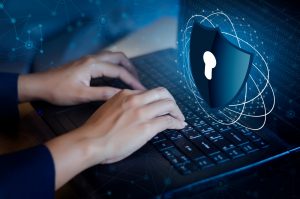Episode 7: Zero Trust
onShore Security’s podcast, onSecurity, explores a variety of topics in the cybersecurity field. Our seventh episode focuses on practicing the zero-trust philosophy to harden cybersecurity targets. As cyber operations at the Enterprise level expand to defend against cyberattacks, hackers seek easier targets among enterprises.
Chase Cunningham joins onSecurity to talk about his effort to raise the maturity level of cybersecurity of targeted companies and how organizations are adopting the use of a zero-trust strategy at every level.
